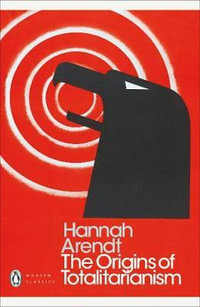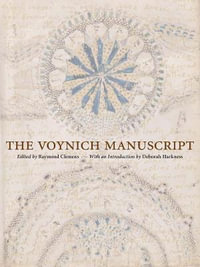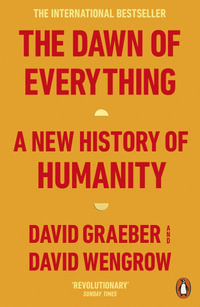
The History of the Irish Famine
By: Christine Kinealy (Editor), Jason King (Editor), Gerard Moran (Editor)
10 October 2018
At a Glance
1480
23.4 x 15.6 x 11.43
RRP $1,155.00
$817.25
29%OFF
or 4 interest-free payments of $204.31 with
orAvailable for Backorder. We will order this from our supplier however there isn't a current ETA.
The Great Irish Famine remains one of the most lethal famines in modern world history and a watershed moment in the development of modern Ireland - socially, politically, demographically and culturally. In the space of only four years, Ireland lost twenty-five per cent of its population as a consequence of starvation, disease and large-scale emigration. Certain aspects of the Famine remain contested and controversial, for example the issue of the British government's culpability, proselytism, and the reception of emigrants. However, recent historiographical focus on this famine has overshadowed the impact of other periods of subsistence crisis, both before 1845 and after 1852.
The narratives of those who perished, those who survived and those who emigrated form an integral part of this history and these volumes will make available, for the first time, some of the original documentation relating to an event that changed not only Irish history, but the history of the countries to which the emigrants fled - Britain, the United States, Canada and Australia. By bringing together letters, government reports, diaries, official documents, pamphlets, newspaper articles, sermons, eye-witness testimonies, poems and novels, these volumes will provide a fresh way of understanding Irish history in general, and famine and migration in particular. Comprehensive editorial apparatus and annotation of the original texts are included along with bibliographies, appendices, chronologies and indexes that point the way for further study.
Volume I: The Great Famine Revisited. Edited by Christine Kinealy
Contents Introduction Chronology
George Nicholls, Esq., Poor Laws - Ireland. Three Reports by George Nicholls Esq., to Her Majesty's Principle Secretary of State for the Home Department (1836-1838).
Lydia Jane Fisher, Letters from the Kingdom of Kerry in the Year 1845. Preface and Letter VIII (1847).
Reports of Messrs. Kane, Lindley and Playfair, Commissioners, On the Potatoe [sic] Disease (1845). Mansion House Committee, Reports of the Mansion House Committee ob the Potatoe Disease in 1845 (1846). Alfred Smee, On the Cause of the Potato Disease: Aphis Vastator (1846, 1847 and 1878). Elihu Burritt, A Journal of a Visit of Three Days to Skibbereen, and its Neighbourhood (February 1847). Bishop John Hughes, A Lecture on the Antecedent Causes of the Irish Famine in 1847 (New York, March 1847). William Bennett, Six Weeks in Ireland (March and April 1847). Isaac Butt, A Voice for Ireland, the Famine in the Land. What Has Been Done and What is to be Done (April 1847). Charles E. Trevelyan, The Irish Crisis: Being a Narrative of the Measures for the Relief of the Distress Caused by the Great Irish Famine of 1846-7 (1848). S. Reynolds Hole, A Little Tour in Ireland by an Oxonian, Chapter V (1859). ã Volume Two: Post Famine Commentary Edited by Jason King Contents Introduction: Irish Famine Migration Narratives: Eye-Witness Testimonies and Survivor Stories Part I: Irish Famine Diaries and Migration Narratives: Stephen De Vere, "Minutes of Evidence before Select Committee on Colonization from Ireland, letter to the Select Committee (30 November, 1847) in British Parliamentary Papers", Emigration, v 5, 45-48.
Stephen De Vere (handwritten), 1847-1848 America Journals, Trinity College Library Dublin. MSS 5061-5062.
John Burke (handwritten) unpublished memoir of his Famine voyage to New York in 1847 entitled "Migration of 7 Brothers," or "Reminiscences," New York Historical Society Library.
John Young (handwritten), "unpublished famine diary of John Young" from Glasgow to Ancaster (1847). John Young was born in Glasgow, Scotland, on May 10, 1827, and emigrated to Ancaster, Ontario in 1847.
Robert Whyte, The Ocean Plague: A Voyage to Quebec in an Irish Emigrant Vessel. Boston: Coolidge and Wiley, 1848.
Henry Johnson, letter describing Irish Famine migration from County Antrim to Hamilton, Ontario (18 September, 1848).
William Smith, journal recording Irish Famine Migration from Liverpool to Hamilton, Ontario, June-July 1848.
Samuel Harvey Craigy (handwritten). "Journal of a Passage from Belfast to N. York" (1849). Public Record Office, Northern Ireland, reference number: T 3258/66. Jane White (handwritten), letter from Grosse Isle, Quebec, to her friend Eleanor, on 29 June, 1849. Public Record Office of Northern Ireland. D.1195/3/5, 8B, 9-15.
Herman Melville, Redburn: His First Voyage (1849).
William Smith, An Emigrant's Narrative, Or, A Voice from the Steerage: Being a Brief Account of the Sufferings of the Emigrants in the Ship "India," on Her Voyage from Liverpool to New-York, in the Winter of 1847-8, Together with a Statement of the Cruelties Practiced Upon the Emigrants in the Staten Island Hospital (1850).
John Mitchel, Jail Journal; or, Five Years in British Prisons (1854).
ã Part II: Eye-Witness Testimonies and Survivor Stories:
Adam Ferrie, Letter to the Right Hon. Earl Grey, one of Her Majesty's Most Honorable Privy Council, and secretary of state for Colonial Affairs: embracing a statement of facts in relation to emigration to Canada during the summer of 1847 (1 December 1847).
Fr. Bernard O'Reilly, letter from Grosse Ile quarantine station to Quebec Mercury (Written on July 11, 1847; published 27 July 1847).
Fr. Bernard O'Reilly, testimony for Report of the Special Committee appointed to inquire into the management of the Quarantine Station at Grosse Isle,...on behalf of the Board of Health of the City of Montreal (23 July 1847).
Fr. Bernard O'Reilly, "Settlement of the Eastern Townships," Quebec Mercury, 30 March. 1848.
Fr. Bernard O'Reilly, "The Irish Emigration of 1847", True Witness and Catholic Chronicle, (17 December 1852).
Fr. Bernard O'Reilly, presided over adoption of Irish Famine orphans in Three Rivers Quebec in 1847 and recalled his experiences in The Mirror of True Womanhood; A Book of Instruction for Women in the World (1877).
Grey Nuns, or Sisters of Charity (translation). Ancien Journal, volume I. nd.
Grey Nuns, or Sisters of Charity (translation). Ancien Journal, volume II. "The Typhus of 1847". nd.
Grey Nuns, or Sisters of Charity (translation). Foundation of St. Patrick's Orphan Asylum (1849).
Providence Sisters, Life of Mother Gamelin: Foundress and First Superior of the Sisters of Charity of Providence (Montreal, 1912). Trans. Anna T. Sadlier.
Anon. The Emigrant Ship. Written for the Protestant Orphan Bazaar. The Literary Garland, and the British North American Magazine (Montreal: Lowell and Gibson, 1850).
Mary Anne Sadlier, "The Plague of 1847," The Messenger of the Sacred Heart (1891).
Maximilian Montagu Hammond, recorded the suffering of Irish emigrants in Montreal's fever sheds in Memoir of Captain M. M. Hammond, Rifle Brigade (1858).
Armine Mountain, A Memoir of George Jehoshaphat Mountain,... Late Bishop of Quebec who cared for Irish Famine emigrants on Grosse Isle quarantine station in 1847 (1866).
Gore Booth Letters, (Appendix x, Minutes of Evidence before Select Committee on Colonization from Ireland, Submitted by Sir Robert Gore Booth, 1849), in British Parliamentary Papers, Emigration, v 5.
Henry David Thoreau, description of the wreck of the Famine ship St. John in Massachusetts in The Shipwreck, Putnam's Magazine (1855).
Margaret Grant MacWhirter, account of the wreck of the Famine ship Carricks in Gaspe, Quebec, in Treasure trove in Gaspe and the Baie des chaleurs (1919).
John Francis Maguire, interviews with Irish Famine emigrants in Canada and detailed descriptions of Famine orphan adoptions in Quebec, The Irish in America (1868).
M.B. Buckley, recalls suffering of Irish emigrants and adoptions of Irish Famine orphans in 1870-71, Diary of a Tour in America (1886).
Robert Walsh (handwritten, translation). Letter of Irish Famine orphan who became a Catholic priest in Nicolet, Quebec, seeking to trace his family members and a younger sister in Kilkenny (1857).
Thomas Quinn (translation). Address delivered by Irish Famine orphan who became a Catholic priest on behalf of his French-Canadian parishioners and people of French Canada. 'Une Voix d'Irlande', in Premier Congres de La Langue Francais au Canada. Quebec 24-30 Juin 1912 (1913).
ã ã ã ã ã Volume 3: Famines, Before and Following the Great Famine. Edited by Christine Kinealy and Gerard Moran. Contents Introduction.
Declaration by English Parliament, London, A declaration of the Lords and Commons assembled in Parliament: Concerning the present lamentable estate and miserable condition of Ireland (June 1643). Henry Elsynge, An ordinance of the lords and commons assembled in parliament, for raising twenty thousand pounds a month for the relief of Ireland (London: Edward Husband, 1646 (1647).
George Grierson, The judgments of God upon Ireland; or, Sickness and famine God's visitation for the sins of the nation (Dublin, 1741). David Stephens, Thoughts of present concernment, for the relief of the poor in a scarcity of corn ... designed at first as part of the employment, and for raising part of the subsistence of boys educated in charter-schools ... by a member of the Incorporated Society [for promoting English Protestant working schools in Ireland] (Dublin, 1746). Letters of Daniel O'Connell to his wife, Mary (June to September 1817). Grand concert, which took place at the Crooked Building, Wellington Quay, for the relief of distressed Orangemen ... [Dublin]: [s.n.], [1822]. Rev. Charles Bardin, A sermon preached in St. Mary's Church, on Sunday, 7th of July, 1822 ... for the relief of the peasantry in the distressed districts (Dublin, 1822). London Tavern Committee, Report of the Committee for the Relief of the Distressed Districts in Ireland: appointed at a general meeting held at the City of London Tavern, on the 7th of May, 1822, with an appendix [contains also reports on fisheries,-linen manufacture] (London, 1823). Marquis of Londonderry, A substance of second speech of the Marquis of Londonderry delivered in the committee of the House of Commons: on Monday, 29th April, 1822, on the subject of the agricultural distress of the country and the financial ... measures proposed for its relief; also the resolutions of the committee, on the 3rd day of June, 1822 (London, 1822).
Motion to House of Commons by Mr. Dominick Brown [sic] MP. Hansard, HC Debates, 11 February 1822. Michael Staunton (ed.) `The famine of 1822' in Tracts on Ireland, Political, and Statistical (Dublin:Office of the Dublin Evening Herald and Dublin Weekly Register, 1823-24). Edward John Turnour (Hon.), An Advent sermon against modern infidels: and An appeal for the people of Ireland, during the late famine (London: C. and J. Rivington, 1823). George Home, Suggestions for giving employment and permanent relief to the manufacturers now so distressed in the liberty [of Dublin]. Addressed to the Committee now sitting at the Royal Exchange, and the public in general (Dublin, 1826) John Newland Maffitt, An address delivered before the Hibernian Relief Society, at their first anniversary (Boston, 1828). Report of the Mansion-House Relief Committee, appointed at a public meeting, held on the 25th September, 1829 ... for the relief of the distressed manufacturers of the city of Dublin and its vicinity (Dublin, 1830). Distress and Relief of Ireland, Hansard, House of Commons Debates (March 1831). Famine in Ireland, House of Commons, 18th February, 1831: statistical description of Erris, and some account of the circumstances which gave rise to the present distress (London: 1831). Scarcity of Provisions in Ireland, Hansard, HC Debates, 29 April 1822 vol. 7 cc. 146-50. Famine in a fertile land'; reports in the newspapers (1831): The Telegraph or Connaught Ranger, 1 June 1831 Connaught Telegraph, 12 July 1831 The Telegraph or Connaught Ranger, 1 June 1831 The Telegraph and Connaught Ranger, 22 June 1831
ã During major subsistence crises in Ireland, relief committees were established. This relief appeal was made on behalf of the distressed poor in Roscrea in Co. Tipperary.
Irish Relief Committee for the Suffering Peasantry in the West of Ireland - An appeal of their behalf, 1831 handbill printed on behalf of the Committee of the Relief Association informing Roscrea patrons of a sermon to be held in the local church for the purpose of collecting money for those in the west of Ireland suffering from famine (July 1831).
James Connery, W. S. O'Brien, The reformer, or, An infallible remedy to prevent pauperism & periodical returns of famine: with other salutary measures for the support of the destitute poor, the enforcement of cleanliness, suppression of usury, and establishing the futility of the plan of William Smith O'Brien, Esq. to mitigate any of those grievances in Ireland (Dublin, 1833).
William G. Andrews; Nivian Niven; Royal Dublin Society, Prize essays on the potato, and the causes of the late partial failures, which obtained the gold and silver medals of the Royal Dublin Society, 1835 (Dublin, 1835). ã Distress in Ireland, Hansard, House of Commons Debates (July 1835). Alexander Carlisle Buchanan, Outline of a practical plan for the immediate, effective, and economical relief of the starving & destitute poor of Ireland: but more particularly the unemployed labouring classes ... submitted ... to the consideration of Lord Melbourne (Brighton: W. Fleet, [1837]). ã Rev. Fielding Ould, A plea for the poorer brethren: being the substance of a sermon, preached in St. Mary's Church, Dublin, on Sunday, December 30th, 1838, on behalf of the Association for the Relief of Distressed Protestants (Dublin, 1839). Distress of the Country, Hansard, House of Commons Debates, 8 July 1842. Distress in Ireland, Hansard, House of Common Debates, February 1862. Irish Distress Observations, Hansard, House of Commons Debates, 2 May 1862. Henry Coulter, The West of Ireland: Its Existing Condition and Prospects (London, 1862). Report of the Mansion House Committee for the Relief of Distress in Ireland (Dublin, 1862). The Famine of 1862 from Parliamentary Papers. Correspondence from the Clifden Poor Law Guardians (Galway County Library, Clifden Poor Law Minute Book, week ending 18 May 1867). The Irish Times Commissioner's report from Murrisk and Louisburgh, Co. Mayo, Sept. 1869, Irish Times, 29 September, 1869. Petition from the Claremorris Board of Guardians to the Lord Lieutenant regarding the situation in the union, Freeman's Journal, 4 October 1879. The reports of an imminent famine along the western seaboard in the autumn of 1879, Freeman's Journal, 29 October, 1879. Letter from Maurice Brooks, M.P. on the distress and suggesting measures, to counteract it. Nation, 1 November, 1879. Declaration of the Catholic hierarchy at their meeting in October 1879 calling on the government to save the people, Nation, 15 November 1879. Address of Revd Patrick Coyle to a meeting at Killanin, Co. Galway, outlining the level of distress in his parish and stating that the landlords' activities were the cause of the problem. Nation, 22 November, 1879. Report of Dr. George Sigerson and Dr. Kenny on the Fever in the Western Districts (Dublin City Archives, 1879/1880). `Second Report of Mr. J. A. Fox,' in J. A. Fox, Reports on the Condition of the Peasantry of the County of Mayo during the Famine Crisis of 1880 (Dublin, 1880). Letter from parish priest of Celbridge, John Donovan to Edward McCabe, 3 January 1880. Vere Foster's letter to Charles Stewart Parnell (P.R.O., N.I., Vere Foster papers, 10 January 1880). Francis MacCormack to E. D. Dwyer Gray, Lord Mayor of Dublin, to the Mansion House Relief Committee in Dublin proposing that that is distribute relief funds through diocesan rather than county committees (27 January 1880). Letter of Patrick Greally, Catholic Administrator of Carna, Co. Galway, outlining the level of distress in his parish, Irish World, 31 January, 1880. Patrick J. McHugh, C.C. to E. Dwyer Gray, Lord Mayor of Dublin (Dublin City Archives, Mansion House Relief Committee Papers, 1880). James H. Tuke, Irish Distress and its Remedies. The Land Question: A Visit to Donegal and Connaught in the Spring of 1880 (London, 1880). James Donnelly to Edward McCabe (17 February 1880). James Redpath to Edward McCabe (15 March 1880). Resolution of the Charitable Irish Society in Boston cancelling their St Patrick's Day Dinner and sending $1,000 to National Land League in Ireland for the relief of distress, Massachusetts Historical Society (Charitable Irish Society Papers. Minutes 1880). Letter of John McDonald of Aberdeen to Archbishop Edward McCabe of Dublin (26 February 1880). Fanny Parnell's, `Hold the Harvest' (1880) and `The Hovels of Ireland' (1880). Evidence of Rev. Canon Brosnan of Caherciveen, Co. Kerry on conditions in his parish, Report of Her Majesty's Commissioners of Inquiry into the Working of the Landlord and Tenant (Ireland) Act, 1870, and the Acts Amending the Same (1881). Report "of the Joint Committee, selected from the Committee of the Duchess of Marlborough Relief Fund and the Dublin Mansion House Fund for the Relief of Distress in Ireland, to be administer the sum of 100,000 Dollars, voted by the Parliament of the Dominion of Canada, towards the Relief of Distress in Ireland, H.C. 1881. Letter from the national school teacher at Corraclare, Co. Clare to Foster asking him to assist Margaret Brew, the daughter of a labourer, to emigrate. Second Report from the Select Committee of the House of Lords on Land Law (Ireland); together with the Proceedings of the Committee, Minutes of Evidence and Appendix, HC 1882. Illustration of the vessel the Nestorian which carried 650 of the Tuke emigrants and how the scheme was seen by people in North America. The illustration indicates paupers and the workhouse on a boat arriving into Boston. Letter from Revd Michael Mahony telling how the Tuke emigrants in Minnesota were progressing. Proceedings of Mr Tuke's Committee (London, 1889). Memoranda of Statement made to His Excellency the Lord Lieutenant of Ireland, on the 9th of January 1883, by the Catholic Prelates of Connaught, relative to the Destitution in their respective Dioceses (1883). Report from December 1885 on how Irish servant girls in Boston remit money back to Ireland to help their families. Boston Daily Globe, 14 Dec. 1885. Report of the distress and problems with the potato crop in the Partry area of Co. Mayo from the meeting of the Ballinrobe Board of Guardians, Connaught Telegraph, 17 April 1886. Evidence of Revd T. Flannery of Clifden to the Poor Relief (Ireland) Inquiry on the 13rd December 1886, outlining the level of distress in his parish, Poor Relief (Ireland) Inquiry Commission: Report and Evidence, and Appendices, H.C. 1887. The crisis of 1886 was averted by James Hack Tuke who organized a subscription among his friends for the purchase and distribution of seed potatoes: `Achill and West of Ireland Seed-Fund' in J.H. Tuke, Reports and Papers relating to the Proceedings of the Committee of `Mr. Tuke's Fund,' For assisting Emigration from Ireland, during the years 1882, 1883, and 1884. Also Report on Distribution of Seed Potatoes in Achill and West of Ireland, in 1886, with suggestions for Permanent Relief; and Letters from Donegal and reports of Success of Emigrants, 1889 (London, 1889). Letter of James Hack Tuke to the London Times in 1889 that to counteract poverty and famine in West Donegal, The Times, 28 May, 1889. Famine throughout Ireland, from newspapers (1890s)
Famine in 1898, from A Servant of the Queen. Reminiscences by Maud Gonne (1938) ã Letter of Stephen Joyce, the Relieving Officer in Clifden Poor Law Union (Clifden Poor Law Union Minute Book, 1889-90).
ã Volume 4: Famine and Emigration Documents Edited by Gerard Moran Contents Introduction.
Part 1: The Exodos Petition from Margaret Cassidy (a widow) to W.S Trench (Lord Shirley's agent), that the landlord would pay the passage fare of her son to North America as she does not have the resources. Has five-acre farm at Fath, Co. Monaghan, but has lost her potato crop. Public Record Office of Northern Ireland, Shirley Papers.
Report from Belmullet, Co. Mayo of emigrants leaving on the Unity bound for North America citing the reasons they were leaving including the failure of the potato crop and the issue rent arrears payments, Mayo Telegraph, 22 April 1846
Petition from the labourers from the Rattibarren barony, Co. Sligo to the government outlining their poverty and asking for aid to be sent to North America, promising to repay any loans they received. Dated 1848 (British Parliamentary Papers, 1848), Appendix to Minutes take before the Select Committee of the House of Lords on Colonisation, HC 1847 (737 - ii) vi, p. 197.
Letter of James Prendergast in Co. Kerry to his son, Thomas, in Boston, 18 Jun. 1848, thanking him and his siblings for remittances they were sending back to help the family survive, Shelly Barber (ed), The Prendergast Letters: Correspondence from Famine-Era Ireland, 1840-1850 (Amherst & Boston, 2006), pp 130-32.
Newspaper account of the large-scale emigration from Ireland in 1849 and the opportunities that exist in the United States for emigrants, London Times, January 1849
Labourers in Co. Mayo contribute to a general fund and every two weeks names were selected and the passage fares provided for a labourer and his family to emigrate to North America. Galway Mercury, 17 April 1852 Report of thirty-two former members of the Achill Church Mission Society Colony who were leaving for North America because of the increased hostility from former friends and relations, and greater threats from a rejuvenated Catholic Church after the Great Famine, Galway Vindicator, 17 May 1854. Report from County Kerry of people emigrating who were able to pay their rent, but the landlords accepted a higher payment, forcing the families to leave, Kerry Examiner, 27 June, 1854.
Part 2: Emigration as a Solution to the Famine
Pamphlet from John Robert Godley and signed by 83 Irish noblemen calling on the British Prime Minister, Lord John Russell, to implement a scheme of colonization of pauper Irish families to North America.
Correspondence between Adam Ferrie and Joseph Kincaid in relation to emigrants that were sent out from Lord Palmerston's estate from Co. Sligo to Quebec in 1847, Papers relative to Emigration to the British Provinces in North America, HC 1847-8 (932), xlvii, pp 35.42.
Correspondence and report in relation to Irish emigrants to New Brunswick in 1847, Papers relative to the Emigration to the British Provinces in North America, HC 1847-8 (932), xlvii, pp 49-55
The large exodus that was taking place in the 1847-8 resulted in suggestions as to how emigration should be put in place, especially that of tenants who were assisted by their landlords, Limerick Reporter, 12 September 1848
Attempts were made to encourage emigration by landowners and the gentry, and in particular to influence government officials, especially after 1847, NLI, Mounteagle paper (Ms 13400 (2) (Letter from Lord Monteagle to Lord Clarendon, dated 21 October 1848).
Establishment of society in Co. Cavan to promote emigration to Australia, Nation, 8 September 1849.
Speech by Lord Mounteagle in the House of Lords on the emigration provisions in the Poor Relief (Ireland) Bill, Hansard, Louse of Lords Debates, vol. 107 (dated 13 July, 1849), cc 312-3
Suggestions to intending emigrants to North America from Thomas D'Arcy McGee, Armagh Guardian, 23 April 1849
ã Emigration of Roman Catholics to Peru, Sligo Champion, 27 October, 1851
Attempts to encourage Irish paupers to emigrate to Argentina. Nenagh Poor Law Union, Limerick Reporter and Tipperary Vindicator, 4 Mar 1850.
Correspondence between R.A. Duncan, Poor Law Inspector for unions in county Limerick, and A.C. Buchanan, Emigration Agent in Quebec, in relation to workhouse pauper inmates that were sent to Canada in 1852, Papers Relative to Emigration to the North American Colonies, HC 1852-3 (1650), lxciii, pp 23-8.
Part 3: Attitude in the Colonies to Emigration
Evidence of Lt Col. Edward MacArthur to the Select Committee on Colonization from Ireland that the sending of Irish workhouse women to Australia would be a great benefit to the colony as there was a major shortage of girls as marriage partners, Minutes take before the Select Committee of the House of Lords on Colonisation, HC 1847 (737 - ii) vi, pp 310-324
Sir. R Routh to Sir Charles Trevelyan objecting to the proposal that two million people be sent from Ireland to Canada over a two-year period, arguing that the colony was not in a position to absorb such numbers, Appendix to Minutes before the Select Committee on Colonization from Ireland, HC 1847 (737-ii), pp 34-5.
Report from the Emigration Agent at St John's, New Brunswick, dated 20 November 1847 on the tenants sent out by Sir Robert Gore Booth from his Co. Sligo estate on the Aeolus and the Yeoman, and the condition of these emigrants.
Part 4: The Experience Crossing the Atlantic
Letter of Rev. Bernard McGauran to Archbishop Joseph Signay outlining the condition of the Irish Famine emigrants who arrived at Grosse Isle in May 1847 and the pressure it put on him and the other Catholic priest, in Marianna O'Gallagher and Rose Masson Dompierre (eds), Eyewitness Grosse Isle, 1847 (Quebec, 1995), pp 50-51.
Account from the wife of Captain Purdon of the Yeoman which sailed from Sligo to New Brunswick in June 1847 bring tenants from Sir Robert Gore Booth's estate stating how they were treated on the voyage after they had landed at Partridge Island, Second Report of the Select Committee of the House of Lord on Colonization from Ireland, HC 1847-8 (368), xlvii, pp 262-3.
Legislation enacted by the New York legislature regarding the entry of emigrants to the port of New York, and the conditions under which ship owners and masters could bring such passengers, Further Papers relative to Emigration to the British Provinces in North America, Part 11, HC 1849 (593-ii), xxxviii, pp 78-81.
Account of the condition on board the "Lady Dombrain" that sailed from Killybegs to St. John, New Brunswick in 1848 from officials in St John, Papers relative to Emigration to the British Provinces in North America, HC, pp 132-4.
Account of tenants sent from Colonel Wyndham's estate in Co. Clare to Quebec on the "Governor" from Limerick in 1848, Papers relative to the Emigration to the British Provinces in North America, HC 1847-8 (971), xlvii, pp 1-3.
Debate in the Limerick Board of Guardians on how the female paupers from the workhouse who were sent to Australia were treated by the shipping crew on the sea voyage, Limerick Reporter, 31 July 1849.
Complaints by Quebec officials about the brig "St. John" which carried emigrants from Galway port in 1849, Further Papers relative to Emigration to the British Provinces in North America, pt II, HC 1849 (593-ii), xxxviii, pp 5-8.
Debate in the House of Lords on the treatment of passengers on board the ships traveling to Australia, Hansard. Louse of Lords Debates, vol. 108 (dated 15 February, 1850), ccs. 810-14.
Vere Foster's account of conditions on board the "Washington" which sailed from Liverpool to New York in October 1850 and the attitude of the crew to the passengers who were regularly assaulted, threatened and abused, Letter from Lord Hobart on Vere Foster's statement regarding passengers on the "Washington" going to New York, H.C, 1851 (198) xl, pp 2-7.
Account of emigrants on the "Berlin", which sailed from Westport and arrived in St. John New Brunswick in 1851, Papers relative to Emigration to the North American Colonies, HC 1852-3, (1650), lxviii, p. 42.
Part 5: The Famine Experiences Abroad
The position of Irish Catholic emigrants in Liverpool before the famine as indicated by Paul Cullen, Paul Cullen to Tobias Kirby, dated 25 June, 1842, Dublin Diocesan Archives, (Cullen Papers, 1842).
Account from November 1846 of how famine emigrants from the West of Ireland arrived in Liverpool in such a poor state with little or no money, many of them walking to Dublin as they did not have the fares, Nation, 14 November 1846, reprinted from the Liverpool Times.
By early 1847 large numbers of Irish emigrants flooded into Britain and in particular the ports of Liverpool and Glasgow, and the fears were that this influx would continue, Manchester Guardian, 20 January 1847.
Report on the medical condition of emigrants in Fredericton, New Brunswick, Papers relative to Emigration to the British Provinces in North America, HC, pp. 126-8.
ã Parliamentary debate in the House of Commons on the impact which the large number of Irish pauper immigrants had on the city of Liverpool, Hansard Parliamentary Debates, xcii, (dated, 7 May 1847), cc. 424-7.
The influx of vast numbers of Irish poor fleeing famine put enormous pressure on the poor law system in many towns and cities in England and Wales as can be seen by the situation in Manchester, Manchester Guardian, 11 December 1847.
Manner in which emigrants in Liverpool were swindled, Galway Vindicator, 5 April, 1848.
Letter from the Henigan family who left Co. Sligo in 1847 and settled in St John's, New Brunswick before moving to and settling in Maine.
There were emigrants whose emigration experience was positive and were prepared to acknowledge the support they had been given. One of those who helped his tenants to leave was Lord Monteagle who helped his tenants leave for Australia, NLI, Mounteagle Papers, (Ms,xxxx Letter from P. Danagher, Melbourne to Lord Mounteagle, dated 20 Mar. 1848).
Warning from the Irish Emigrant Society of New York to those who were considering coming to New York, Armagh Guardian, 1 May 1848.
Newspaper account of a post mortem carried out in York in July 1848 of the McAndrew family from Co. Sligo and who had died in the city from Famine Fever showing up English attitudes to the famine Irish, The York Herald, 10 July 1847.
Report of Irish Famine emigrants in Edinburgh indicating many were diseased and the appalling living conditions they endured, Edinburgh Medical Journal, 69 (1848)
ã ã ã Letter from Margaret McCarthy, aged 22 years, to her father, Alexander McCarthy and family, who was assisted, as part of a group of 177 people, from the Crown Estate at Kingwilliamstwon, Co. Cork and travelled on the "Columbus" in 1849 and settled in New York, Eilish Ellis, Emigrants from Ireland, 1847-1852: State-Aided Emigration Schemes from Crown Estates in Ireland (Baltimore, 1993), pp 64-7.
The Poor Irish in America, Galway Vindicator, 30 July, 1853. Attempts were made to improve the position of emigrants who arrived in ports such as Liverpool. This is an advertisement notifying the establishment of the home in July 1851, Nation, 12 July, 1851.
Report of Irish people who had been resident in England for a long period being sent back to Ireland when they became destitute, Nation, 2 September, 1854.
Report from the Chester Board of Guardians on the removal of Bridget Molloy, a widow and her six children, all who had been born in England, to Ireland under the Act of Settlement, but who returned to the city after the Lord Mayor of Dublin paid her passage fare, Evidence of J. Trevor, Chairman of the Chester Board of Guardians, Report of the Select Committee on Poor Removal, H.C 1855
Letter of H. Shire who had settled in South Africa to his brother in Shanagolden, Co. Limerick informing him of his life in Natal and the prospects for emigrating to the colony as James had sought this information, Seventh Report from the Select Committee on the (Poor Laws) Ireland, together with minutes of evidence, HC 1849 (237), xv, pp 134-7
Letter from an emigrant in Australia who had been assisted by Lord Mounteagle to emigrate, NLI, Mounteagle paper (Ms 13400 (2) (Letter from Michal Martin to Lady Mount eagle, dated 28 August 1850).
Letter to the Sligo Board of Guardians from a pauper inmate that they had assisted to emigration to North America and his situation since his arrival there, Sligo Champion, 17 May 1851.
ã Part 6: Where To Go
Letter from Vere Foster to the newspapers advising potential emigrants as to the best places in the United States to settle in and providing information on wages and accommodation. Proposing that Illinois was best destination for emigrants, Nation, 9 August, 1851.
Letter from Vere Foster, dated November 1854, calling for subscriptions to help single people to emigrate, especially young females, so that they could assist the remaining family members in Ireland through remittances, and list of those who donated, (Vere Foster Papers, Public Record Office of Northern Ireland,).
Part 7: The Poor Law and Emigration Memorial from the Kilrush Board of Guardians to the Prime Minister, Lord John Russell, advocating emigration from the workhouses as a solution to Ireland's problems, and as a way of expanding and developing the colonies, Clare Journal, 26 November 1846.
Materials used in the fitting out of the 38 females sent from Ballinasloe workhouse in August, 1848 and report arguing that investment in Ireland would result in these girls being able to remain in Ireland, Western Star, 19 August 1848.
Letter from Bishop T. Murphy, Chairman of the Children Apprenticeship Board to the Colonial Secretary regarding the female workhouse paupers that had been sent out on the "Roman Emperor" in 1848, NAI, CSORP, 1848/0.3081 (Letter from Bishop T. Murphy ro Lord Grey, dated, 21 November, 1848).
Letter from Australia from a pauper sent out under the Female Orphan Scheme to her mother in Limerick, NLI, Mounteagle paper (Ms 13400 (2)
Evidence of E. Senior to the Select Committee on the Poor Law, recommending emigration of young workhouse female paupers to the colonies, Third report from the Select Committee on the Poor Law (Ireland), together with minutes, HC. 1849 (137), xv, pp 113-5.
ã Debate in Skibbereen Board of Guardians proposing that female paupers in the workhouse be sent to the colonies, Galway Vindicator, 20 December 1848.
Evidence of the R.J.T. Orpen to the Select Committee on the Poor Law urging that emigration be used as a panacea to the overcrowding in the workhouses, Third Report from the Select Committee on the Poor Law (Ireland), HC 1849(93) xv, p. 168.
Report on the female orphans who sailed from Plymouth to Australia on the Thomas Arbuthnot in October 1848, Mayo Telegraph, 20 November 1850.
Poor Law Guardians were allowed contribute towards the cost of pauper inmates emigrating. Some landowners were prepared to pay part of the cost and sought contributions from the unions. This discussion took place in the Tuam Board of Guardians, Tuam Herald, 25 October, 1851.
Names of the fifty girls sent from Mountbellew workhouse to Montreal on the Primrose in July 1853 providing their ages, length of time in the workhouse and where they came from in the Mountbellew area.
Minutes of Mountbellew Poor Law Guardians, week ending 5 March (Galway City Library, Mountbellew Poor Law minute book, Nov. 1852-May 1853.
Part 8. Opposition to Emigration Letter from Bishop Edward Maginn of Derry condemning emigration from Ireland and those who advocated it, stating that landlord policies were the main reasons why people were living, Nation, 17 April 1847.
Newspaper editorial opposing emigration, 1849, Galway Mercury, 5 May 1849
Statement by Mr Horsely, a Tralee Poor Law Guardians, denouncing the sending of workhouse girls to North America, stating that some entered the workhouse so that the Poor Law would pay their passage, Kerry Examiner, 9 May 1854.
ISBN: 9781138200777
ISBN-10: 1138200778
Series: Routledge Historical Resources
Published: 10th October 2018
Format: Not Supplied By Publisher
Language: English
Number of Pages: 1480
Audience: College, Tertiary and University
Publisher: Taylor & Francis Ltd
Country of Publication: GB
Dimensions (cm): 23.4 x 15.6 x 11.43
Weight (kg): 2.77
Shipping
| Standard Shipping | Express Shipping | |
|---|---|---|
| Metro postcodes: | $9.99 | $14.95 |
| Regional postcodes: | $9.99 | $14.95 |
| Rural postcodes: | $9.99 | $14.95 |
How to return your order
At Booktopia, we offer hassle-free returns in accordance with our returns policy. If you wish to return an item, please get in touch with Booktopia Customer Care.
Additional postage charges may be applicable.
Defective items
If there is a problem with any of the items received for your order then the Booktopia Customer Care team is ready to assist you.
For more info please visit our Help Centre.
You Can Find This Book In
This product is categorised by
- Non-FictionHistoryRegional & National HistoryEuropean HistoryBritish & Irish History
- Non-FictionEconomicsEconomic History
- Non-FictionHistorySpecific Events & Topics in HistorySocial & Cultural History
- Non-FictionHistoryEarliest Times to Present DayModern History from 1700 to 1900
- Non-FictionHistoryRegional & National HistoryHistory of the Americas
- Non-FictionHistoryGeneral & World History























